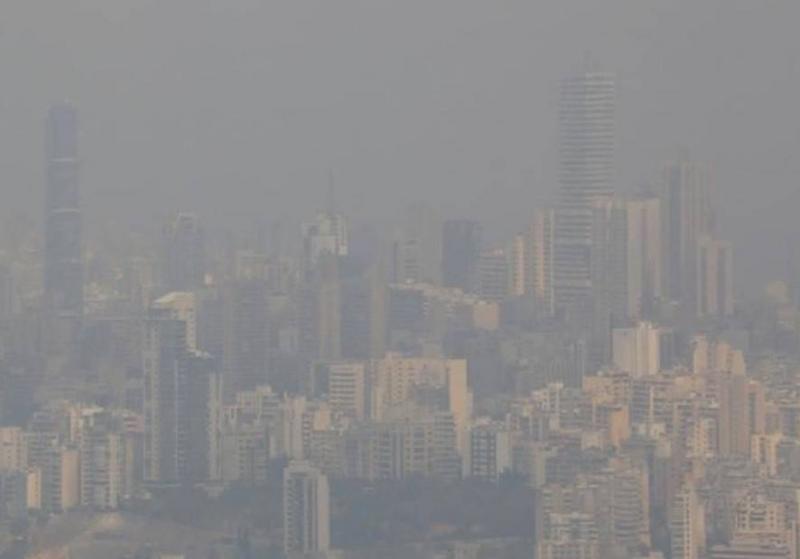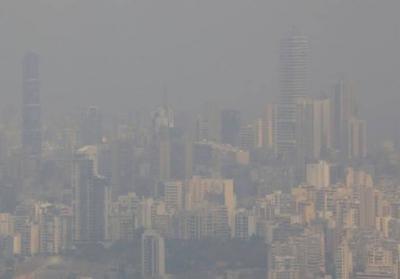In Lebanon, which has been suffering from an electricity crisis for years, dating back to the civil war, electrical generators have emerged to fill the gap left by the state in providing electricity to citizens. However, the services of these generators, which have turned into what resembles a network of "monopolies," have inundated Lebanese citizens with a silent illness.
A study conducted by the American University of Beirut highlighted the air pollution crisis in the Lebanese capital caused by the use of electric generators. It concluded that the excessive reliance on diesel generators has significantly affected cancer rates, with a sharp increase in positive cancer diagnoses. This research, set to be published by scientists from the American University of Beirut within three months, has shocked Lebanese people who are already suffering from complicated financial, economic, and political crises since the fall of 2019, particularly regarding the alarming cancer risk percentages and the distribution map of these lethal generators that exist within residential neighborhoods and along roads.
In this context, parliament member Najat Saliba, an atmospheric chemistry scientist at the American University who led the study, noted that the cancer risk has risen by approximately 50%, which is concerning and dangerous. In statements to "Al Arabiya," she mentioned that more than 9,500 diesel generators have been in Lebanese cities since the economic collapse in 2019. These generators can be seen in the streets, heard operating, and their toxic emissions inhaled, all without following public safety standards regarding operating hours and the installation of filters.
Furthermore, she explained that "before 2019, reliance on electric generators in Lebanon was limited to five hours at most to fill the gap from the national electricity network. However, the situation changed after that year, especially with the onset of the economic and monetary crisis, leading to a significant increase in reliance on private generators for an average of 17 hours a day, which contributed to the increase in cancer cases and raised the risk of developing the disease by 50%."
Saliba pointed out that the political authorities created the private generator sector illegally since the production and sale of electricity is an exclusive right of the state. She added that "this authority perpetuates corruption and commits genocide against its people, allowing the private generator sector to grow at the expense of the law and the health of the Lebanese."
For his part, Environment Minister Nasser Yassine told "Al Arabiya" that the ministry is working on gradually rehabilitating and operating air quality monitoring stations that had stopped functioning since mid-2019 after securing a grant from the Global Environmental Facility in cooperation with the World Bank. He noted that "the ministry has proposed customs exemptions and reduced fees on electric and hybrid vehicles in the 2024 budget to alleviate air pollution caused by the transportation sector."
Despite this, Yassine confirmed that the substantial presence of electric generators among homes, institutions, and commercial centers poses a serious risk to the environment and public health. He also indicated that "the Ministry of Environment issued updated and stricter guidelines last fall regarding the installation of filters for electric generators and requested governors and local administrations to implement them on large and medium-sized generators operating in their areas. Some governors, particularly in Beirut, have circulated these guidelines for compliance, and the Ministry of Environment is conducting workshops with all concerned parties in the Ministry of Energy and Water, the Ministry of Interior, and public prosecutors for effective implementation."
Since 2017, the last time the American University of Beirut conducted these measurements, levels of cancer-causing pollutants in the atmosphere have doubled in three areas in Beirut.
Scary Figures
Hani Nassar, head of the "Barbara Nassar Association for Cancer Patient Support," told "Al Arabiya" that the World Health Organization's figures regarding the increase in cancer rates in Lebanon are alarming, which is similarly true for mortality rates. He also mentioned an increase in lung and breast cancer rates, noting a concerning rise in breast cancer among women under thirty.
Nassar urged the Lebanese state to fulfill its duties and take measures to help curb the spread of various types of cancer in several areas and to enforce relevant laws. He said, "As long as the state has deprived many cancer patients of essential medications due to the financial crisis, why not impose a tax on tobacco that would be used to support cancer patients and cover their treatment costs, given that tobacco is one of the main causes of cancer?"
This study reminds Lebanese people of the bleeding wound they have been suffering from for more than twenty years: electricity. Human Rights Watch accused the Lebanese authorities in its report last year of failing to ensure the right to energy due to the mismanagement of the sector over decades. It also indicated that "politicians and their affiliates have exploited the electricity sector to promote their political goals, including distributing jobs in this state-run company to reap substantial profits from lucrative contracts, often at the expense of the state treasury, and profiting from the private generator sector."
Lebanese citizens reacted to this alarming study by calling on the political authorities to take immediate action to put an end to the silent killer that is devastating their health and the future of their children.




